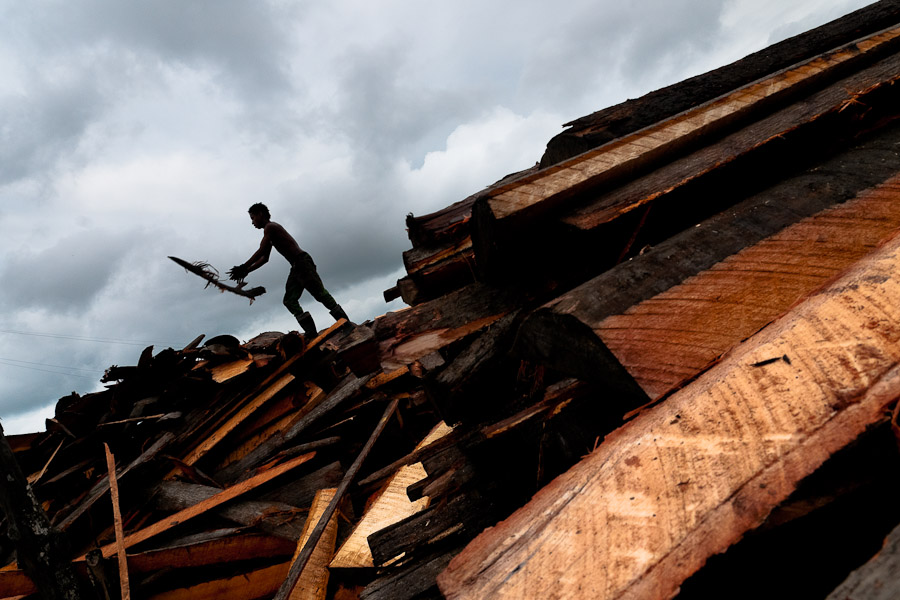
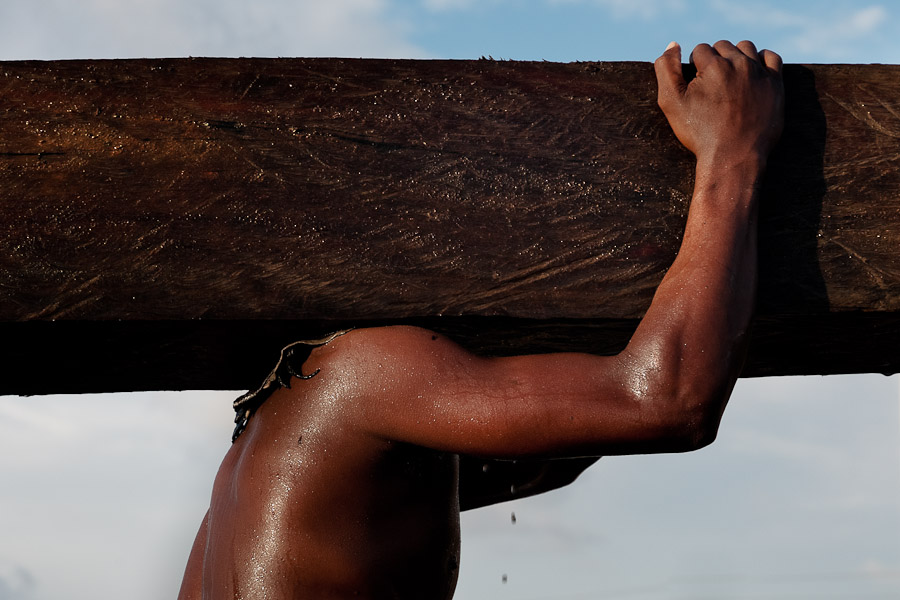
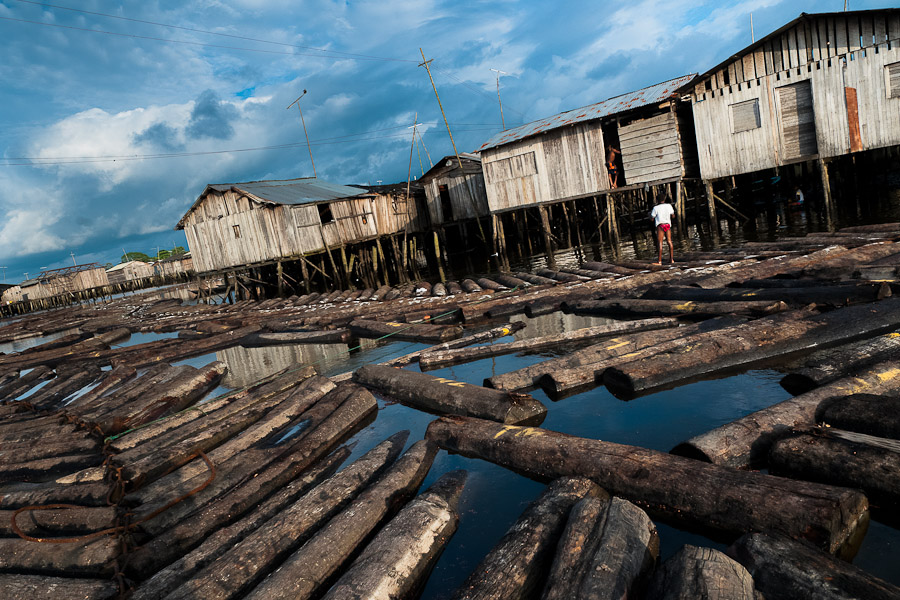
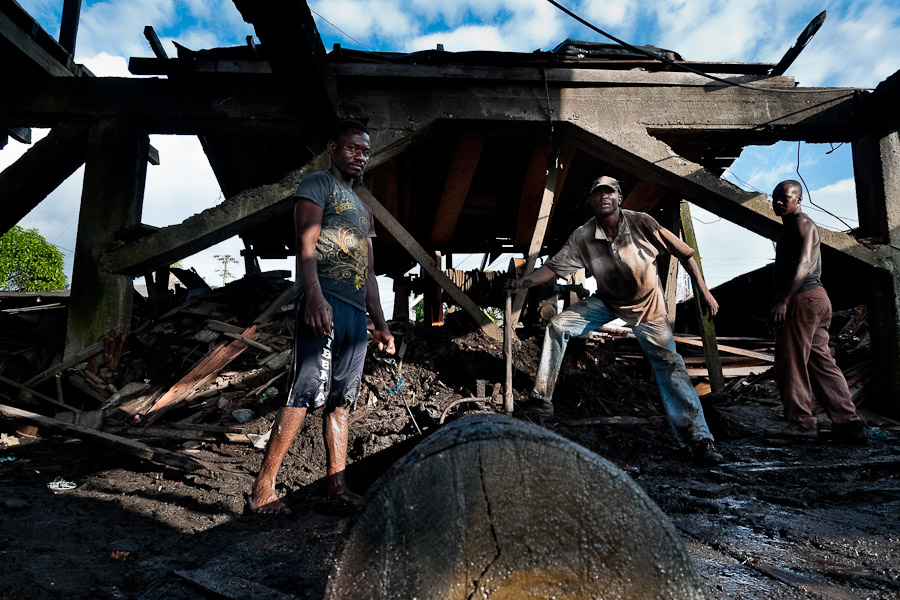
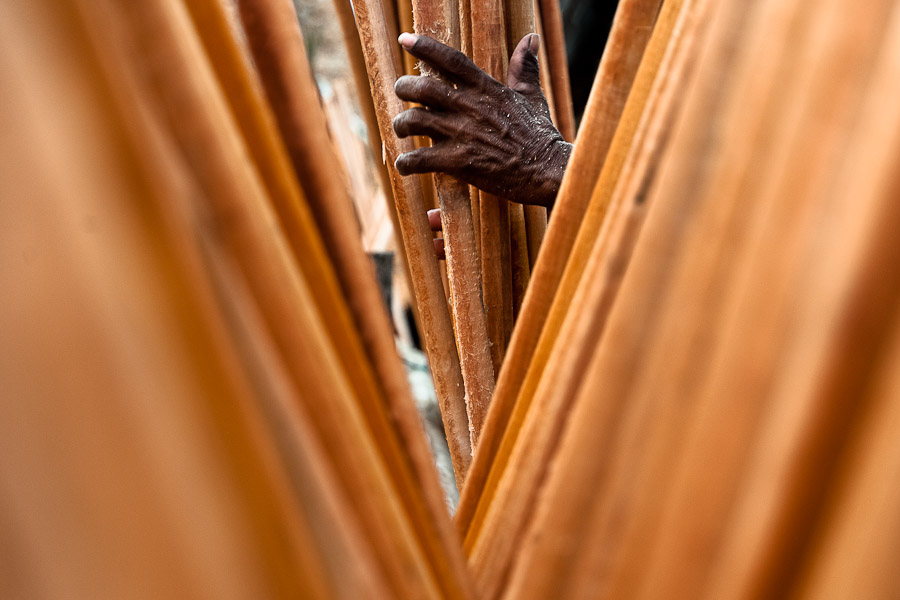

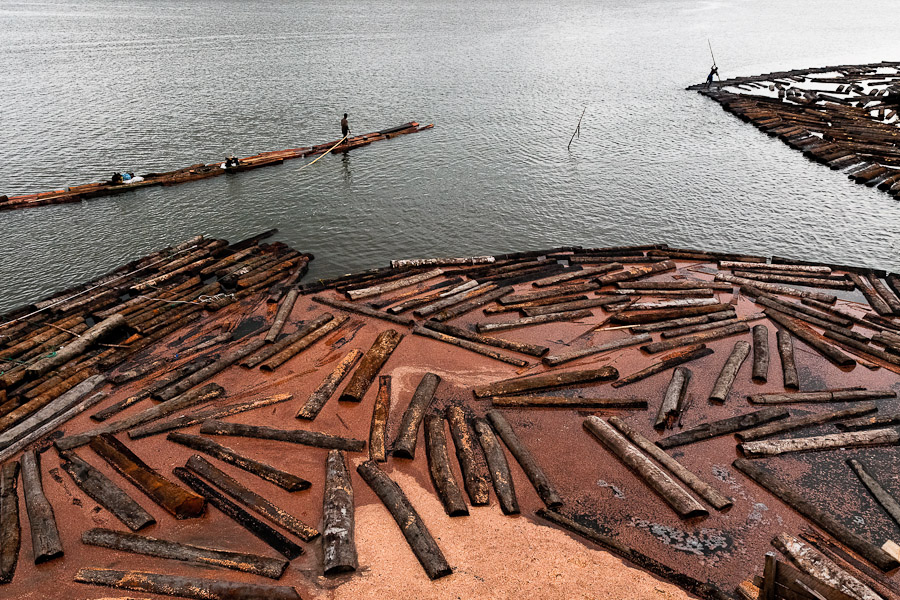
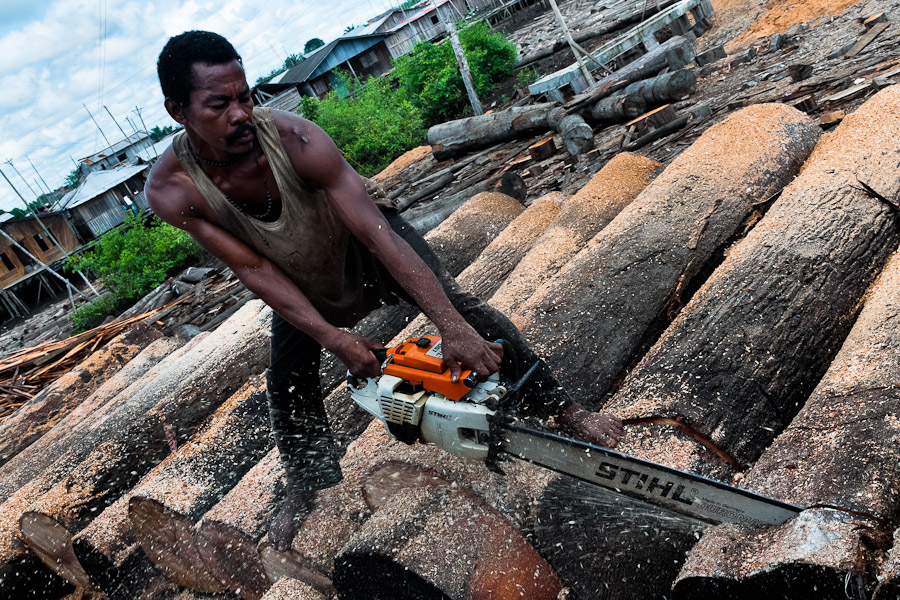
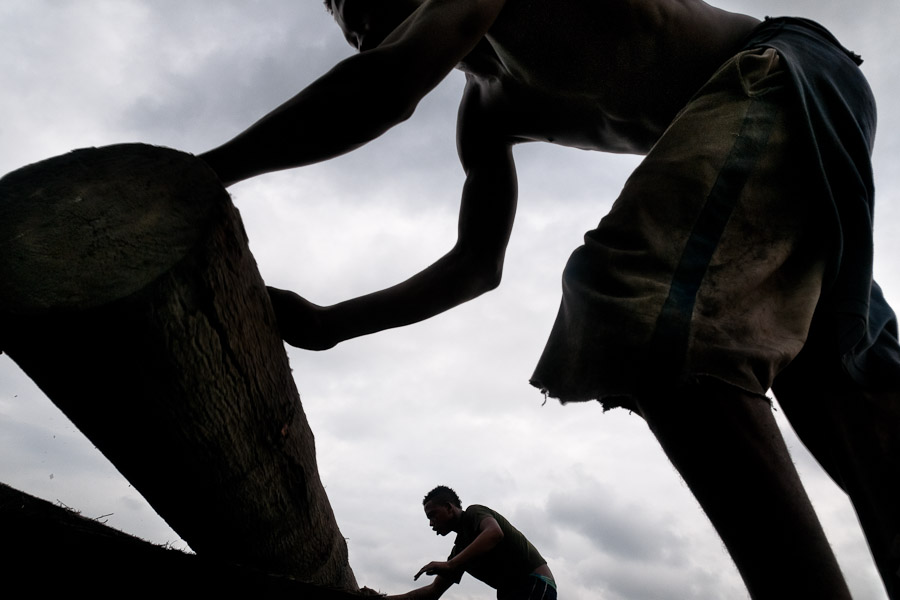
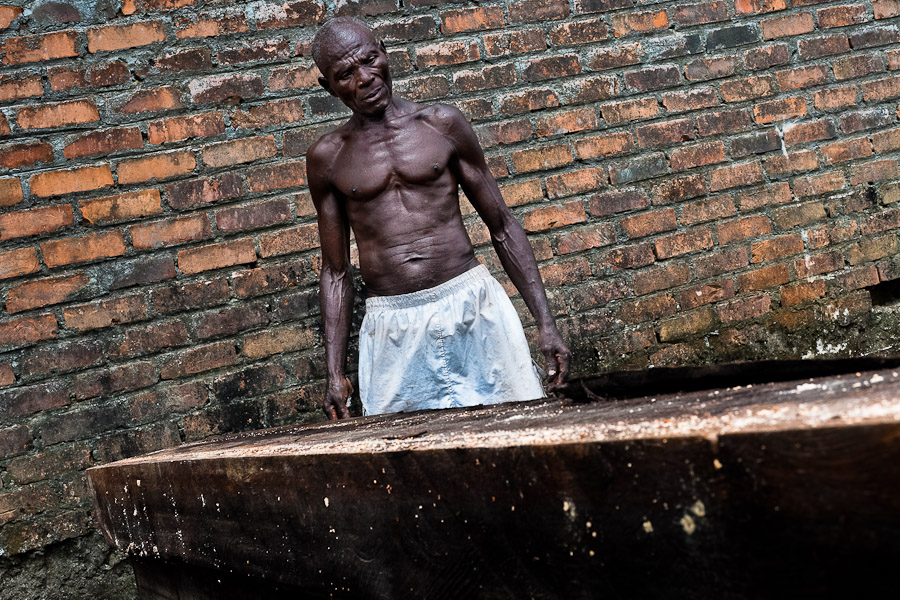
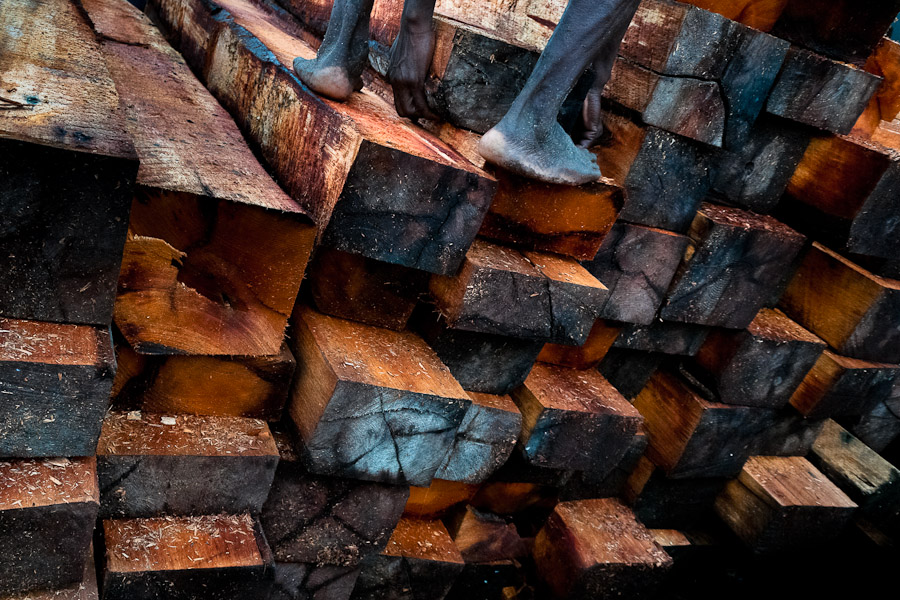
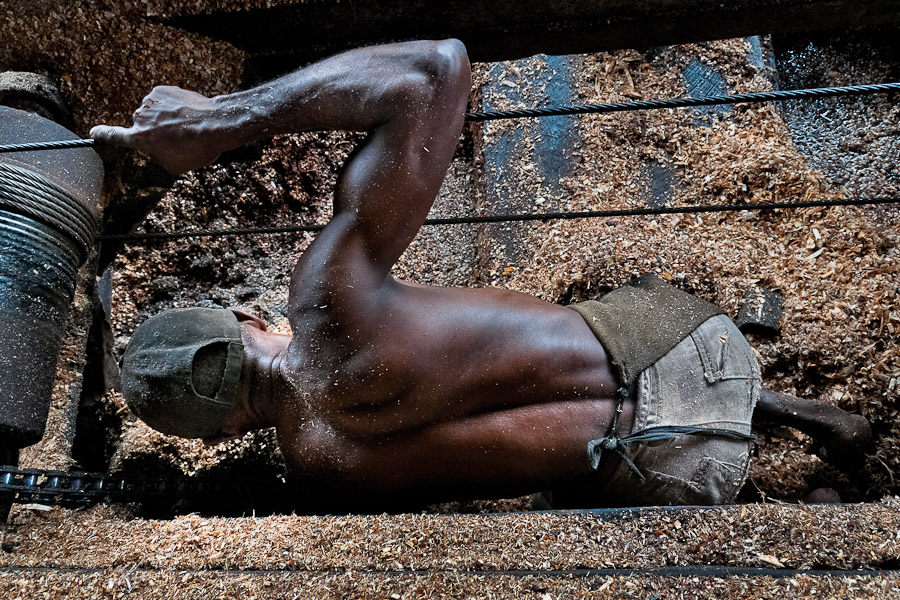

Rainforest wood from Colombia
Tumaco, Colombia – 2010
Colombia's forests cover more than half of the country's total land mass. Despite its small size, Colombia is the second most biodiverse country on Earth (behind Brazil), a home of 10 percent of the world's species. Much like any other less economically developed country, Colombia makes efforts to become a competitive trade partner in the international market, however mainly by uncontrolled plundering its own natural, non-renewable resources. Each year, nearly 200,000 hectares of natural forest are lost, according to the statistics published by the United Nations in 2003. Furthermore, the true figure may be higher since about 100,000 hectares of forest are cut down illegally every year. Colombia's Pacific coast rainforests are rapidly disappearing, they suffer from extreme deforestation that results primarily from agricultural activities (including drug cultivation), mining and logging.
In the last years, pacific departments of Nariño and Chocó have been experiencing extreme deforestation due to the unsustainable logging. Tens of sawmills located on the banks of the jungle rivers generate almost half of Colombia's wood production. The wood species processed here (sajo, machare, roble, guabo, cargadero and pacora) are mostly used in the construction industry and the paper production. Due to the geographical isolation, huge poverty and lack of education, local Afro-Colombian men have no other opportunity but to work as ‘Coteros’ (logs carriers) at sawmills, in the majority of cases with no contract. This extremely tough work is poorly paid, ‘Coteros’ work for a minimum wage of 5-10 dollars per day. Forestry exploitation, together with the long armed conflict, lead to the irreversible destruction of both the fragile environment and the traditional Afro-Colombian society.



no comments yet